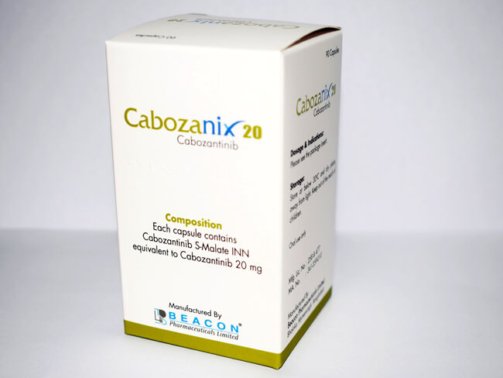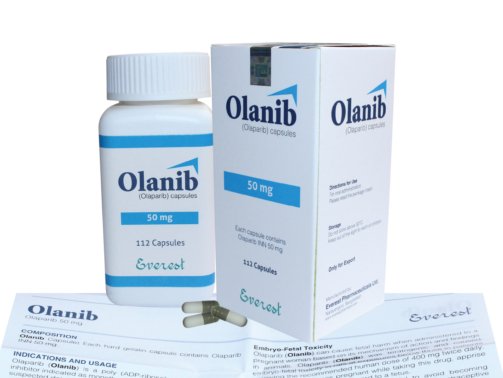Ibrutinib 140 mg (Imbruvica)
0.00$
Ibrutix (Ibrutinib) is a type of kinase inhibitor used to treat various conditions, including Mantle Cell Lymphoma (MCL) in patients who have undergone prior therapy, Chronic Lymphocytic Leukemia (CLL) / Small Lymphocytic Lymphoma (SLL), Chronic Lymphocytic Leukemia (CLL) / Small Lymphocytic Lymphoma (SLL) with 17p deletion, Waldenström’s Macroglobulinemia (WM), and Marginal Zone Lymphoma (MZL) in patients requiring systemic therapy after previous anti-CD20-based treatment. Ibrutix is formulated in capsule form for oral consumption and should be ingested with a glass of water. It’s essential not to open, break, or chew the capsules.
Ibrutinib, a targeted medicine used to treat various blood malignancies, is marketed under the name Ibrutinib 140 mg. Ibrutinib, which is a member of the class of drugs called Bruton’s Tyrosine Kinase (BTK) inhibitors, is mostly used to treat diseases including Waldenström’s macroglobulinemia (WM), mantle cell lymphoma (MCL), marginal zone lymphoma (MZL), and chronic lymphocytic leukemia (CLL).
What is Ibrutinib?
The first-of-its-kind oral BTK inhibitor is ibrutinib. An essential component of the B-cell receptor signaling system, which is crucial for the survival and growth of B-cell cancers, is Bruton’s tyrosine kinase. Ibrutinib reduces tumor development and cancer cell death by selectively blocking BTK, which interferes with cancer cell signaling.
Indications and Uses
The following conditions are treated with Ibrutinib 140 mg:
Cases with or without a 17p deletion are included in chronic lymphocytic leukemia (CLL).
The treatment for mantle cell lymphoma (MCL) usually follows at least one previous therapy.
One uncommon type of non-Hodgkin lymphoma is Waldenström’s macroglobulinemia (WM).
Marginal zone lymphoma (MZL) is a danger for patients who require systemic therapy and have received at least one prior anti-CD20-based regimen.
Patients who have not responded to one or more lines of systemic therapy are at risk for chronic graft-versus-host disease (cGVHD).
Dosage and Administration
The ailment being treated determines the Ibrutinib 140 mg dosage:
420 mg given orally once daily (three 140 mg capsules) is the usual dosage for CLL and WM.
It is advised to take 560 mg of MCL once daily, which equates to four 140 mg capsules.
The standard dosage for cGVHD is 420 mg once daily.
Ibrutinib should be taken with a full glass of water at the same time every day. Consistency is crucial, however, it can be taken with or without food. It is recommended that capsules be swallowed whole rather than broken, cracked, or chewed.
Mechanism of Action
The BTK enzyme, which is necessary for B-cell receptor signaling, is irreversibly bound by ibrutinib. B-cell activation, proliferation, and survival are all inhibited by this blockage; these activities are frequently dysregulated in blood malignancies. Ibrutinib efficiently slows or inhibits the proliferation of malignant B-cells by blocking this pathway, which aids in disease control.
Possible Side Effects
Despite its demonstrated effectiveness,Ibrutinib can have several adverse effects, the intensity of which varies from patient to patient. Typical adverse effects consist of:
Having diarrhea
Weariness
Feeling queasy
Bleeding or bruises
Pain in the muscles and bones
Rash
A fever
Elevated blood pressure, or hypertension
The following are severe side effects that require immediate medical attention:
An erratic heartbeat, or atrial fibrillation
Serious infections
Issues with the liver
Complications from bleeding
Rare secondary cancers.
Precautions and Warnings
Before starting Ibrutix 140 mg, it is important to inform your healthcare provider about:
Any history of heart disease, high blood pressure, liver problems, or bleeding disorders
All current medications, including over-the-counter drugs and supplements, especially blood thinners (e.g., warfarin, aspirin), antifungals, and antibiotics
Any planned surgical procedures, including dental work, as Ibrutinib, may increase bleeding risk
Pregnancy or breastfeeding status – Ibrutinib is not recommended during pregnancy or lactation
Patients should avoid grapefruit juice and Seville oranges, as these may increase Ibrutinib levels in the blood, raising the risk of toxicity.
Drug Interactions
The CYP3A enzyme system is responsible for the metabolism of ibrutinib. Its efficacy and safety may be considerably changed by co-administration with potent CYP3A inducers (such as rifampin or carbamazepine) or inhibitors (such as ketoconazole or ritonavir). In these situations, different treatments or dose modifications can be necessary.
Storage Instructions
At room temperature, Ibrutix 140 mg should be stored between 20°C and 25°C.
Keep it away from heat, dampness, and direct sunlight.
Keep pets and children away from the medicine.
Conclusion
With its efficient oral therapeutic option and focused mode of action, Ibrutix 140 mg (Ibrutinib) has completely changed the treatment landscape for several B-cell malignancies. Its oral formulation and once-daily dosage make it more convenient for people receiving long-term cancer treatment. To control side effects, drug interactions, and track illness response, it must be administered strictly under a doctor’s supervision, much like all powerful drugs.
When taking Ibrutinib medication, always heed your doctor’s advise regarding dosage, monitoring, and any necessary lifestyle changes. Ibrutix has the potential to be an effective weapon in the fight against blood malignancies if used appropriately.
Order Now At Mdx Pharma bd….
To order from MDX Pharma BD, visit their website at https://mdxpharmabd.com, where you can browse products and place orders online. For inquiries or orders via email, contact emedicarepharma@gmail.com. Alternatively, call (+88) 01929123476. Their address is 29, Abdullahpur, Uttara, Dhaka-1230, Bangladesh.
1. What is the purpose of Ibrutix 140 mg?
The main purpose of Ibrutix (ibrutinib) is to treat specific blood malignancies, such as:
CLL, or chronic lymphocytic leukemia
MCL, or mantle cell lymphoma
The macroglobulinemia of Waldenström’s (WM)
MZL, or marginal zone lymphoma
cGVHD, or chronic graft versus host disease
2. Ibrutinib: How does it work?
It is an inhibitor of Bruton’s tyrosine kinase (BTK), which prevents signals that support the growth and survival of malignant B-cells.
3. How should I take 140 mg of Ibrutix?
Once a day, take it orally while drinking a full glass of water. Suck whole; do not chew or crush. Follow your doctor’s medication instructions to the letter.
4. Are there any significant adverse effects to be aware of?
Significant bleeding
Infections
Issues with the heart’s rhythm, such as atrial fibrillation
Elevated blood pressure
The second primary cancers
Inform your physician right away if you experience any odd symptoms.
5. Ibrutinib: Is it safe to take when pregnant or nursing?
It is not advised while nursing because it may affect the fetus. During and for a while after therapy, use an effective birth control method.
| Generic Name | Ibrutinib INN |
|---|---|
| Formulation | Capsule |
| Available Pack Size | 120’s in a bottle |
| Available Strength | 140 mg |

 Cart is empty
Cart is empty 



